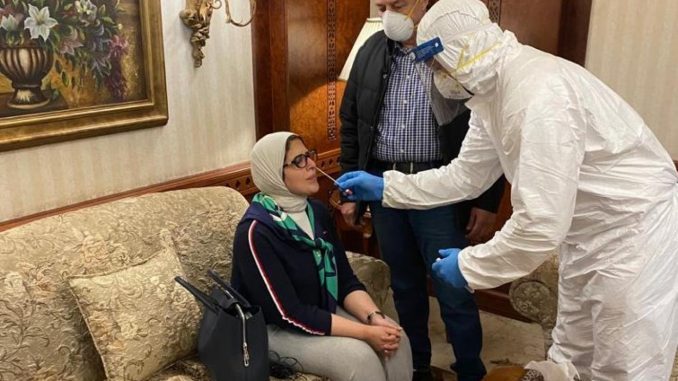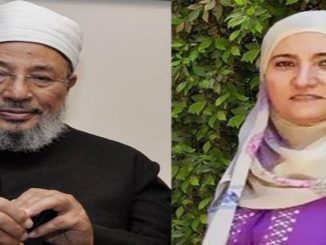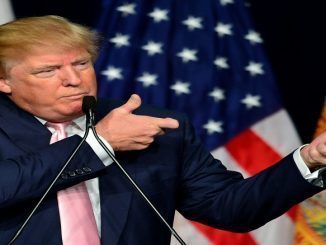
While the government tried to bury evidence of the outbreak of coronavirus all over the country, the Egyptian activists on the social networking sites forced it to confess, stated a report by Ola Salem in the Foreign Policy Magazine.
Egypt originally seemed to have evaded a severe coronavirus outbreak. After recording its first case in February, Egypt did not report a surge in infection of the sort experienced across the West. The picture has drastically changed since then. Even the likely deflated official statistics indicate the country has the second-highest number of COVID-19 cases in Africa and a high death rate.
The Egyptian government would prefer to remain in denial. But ordinary Egyptians, speaking out on social media, have now forced it to own up to the growing crisis. Whether agitation on social media can also force the state to cease manipulating its data remains to be seen.
The earliest instance of such data manipulation can be traced to March. Although tourists tested positive upon returning from vacations at the ancient city of Luxor, the Egyptian government downplayed the scale of the local outbreak. In one confirmed case, 45 tourists and crew members were found to be infected with COVID-19 on a Nile cruise ship. In the United States alone, cases linked to Nile cruises were reported in Maryland and Virginia. Egypt’s tourism minister, Khaled el-Enany, nevertheless insisted the situation was under control and tourism would remain open. The health minister, Hala Zayed, warned Egyptians not to exaggerate the problem.
But despite the low official number of cases inside the country, alarm was spreading among Egyptians. The government, after all, could not censor data that was emerging abroad—and made accessible via social media—about infections related to Egypt. But the government soon redoubled its efforts to control the narrative at home. Officials suppressed data, manipulated death reports, expanded an emergency law to allow arrests of anyone contradicting state COVID-19 news, arrested critical doctors, and muzzled journalists.
Sometimes the government’s media manipulation efforts were so exaggerated as to be comical. One anchor conducted a one-on-one interview with “the coronavirus” itself, speaking to a person dressed up in a green pinhead costume depicting the virus, apparently to put Egyptians at ease. The presenter asked the “virus” what message it wanted to send to the Egyptian people. The virus responded that the panic was all social-media nonsense. In another instance, in April, Magdy Badran, a member of the Egyptian Society of Pediatric Allergy and Immunology, said in a TV interview that the Americans and Europeans had sought advice from Egypt about how to defeat the virus as Egypt did. “America called and asked what we should do about corona,” he said. “I told them to eat fava beans.” On another show, a journalist on a pro-government channel suggested that spices used in India prevented infection.
While Egypt joined other countries in imposing social restrictions to help halt the spread, the state continued to report low figures. Based on an analysis of flight records and traveler data, a Canadian study in March estimated that about 19,310 people were infected in Egypt. The Egyptian government’s official account for that period of early March was that three people were infected. The research was reported by the Guardian’s Egypt correspondent, who was then summoned by state apparatus and questioned for hours over what they believed was misinformation. Egypt later forced the journalist to leave the country.
Doctors have also fallen afoul of the country’s COVID-19 censorship. Those critical of the country’s efforts to combat the virus, and lack of personal protective equipment, were labeled as Muslim Brotherhood members or accused of treason. Others were threatened with losing their jobs. The government went as far as arresting eight health care workers, including a 26-year-old pregnant woman, Alaa Shaaban Hamida, who had been treating a patient with COVID-19 symptoms in March. A nurse used her phone to call a government hotline to report the case. Hamida was later arrested on charges of “membership in a terrorist group,” “spreading false news,” and “misusing social media.” Authorities have also predictably labeled the pandemic a Muslim Brotherhood conspiracy.
Although the state managed to censor some of its critics, its collapsing health care system is an undeniable problem. Egyptian doctors and nurses have been dying at a rapid pace. As hospitals began to run out of beds, swarms of Egyptians took to social media to seek help. Videos were uploaded of hospital patients screaming in despair over the lack of doctors available to help them. Dead bodies were documented piling outside of hospitals because there was no one available to take them to a morgue. Doctors reported being obliged to triage, deciding which patients would live and which would die without any treatment. In a widely shared post, Mahmoud Antar said his brother, a professor at a medical college, died from COVID-19 but was given a death certificate stating that pneumonia was his cause of death.
As such reports of a growing COVID-19 crisis gained traction on social media, the official data in Egypt began to change. Over the course of the past six weeks, the country’s somewhat stable curve saw an upward trend with a peak in cases reported in June. Even with the limited testing available, by July 6 the most populous country in the Arab world had reported cases exceeding 75,000 and deaths exceeding 3,300, placing in the Egypt among the top 10 countries with the highest mortality rate.
While the country’s official curve is likely an accurate depiction of general trends in the country, the number of cases and deaths the state is unwilling to publicly report remains in question. On July 1, in an unusual admission, Egypt’s higher-education and science minister, Khaled Abdel Ghaffar, admitted that numbers could be 10 times higher than official figures.
As the country begins to remove its lax lockdown rules, it will remain crucial to read Egypt’s state COVID-19 figures with some scrutiny. (Perhaps hardest to assess is the scale of the problem in Egyptian prisons. Despite concerns of overcrowded prisons becoming breeding grounds for infection, and despite cases arising among inmates, the government has shown little interest in addressing the problem.) The state is already reporting overall cases are in decline, and Badran now says the virus is getting weaker and is losing its contagious characteristics—a claim disputed by other medical experts.



